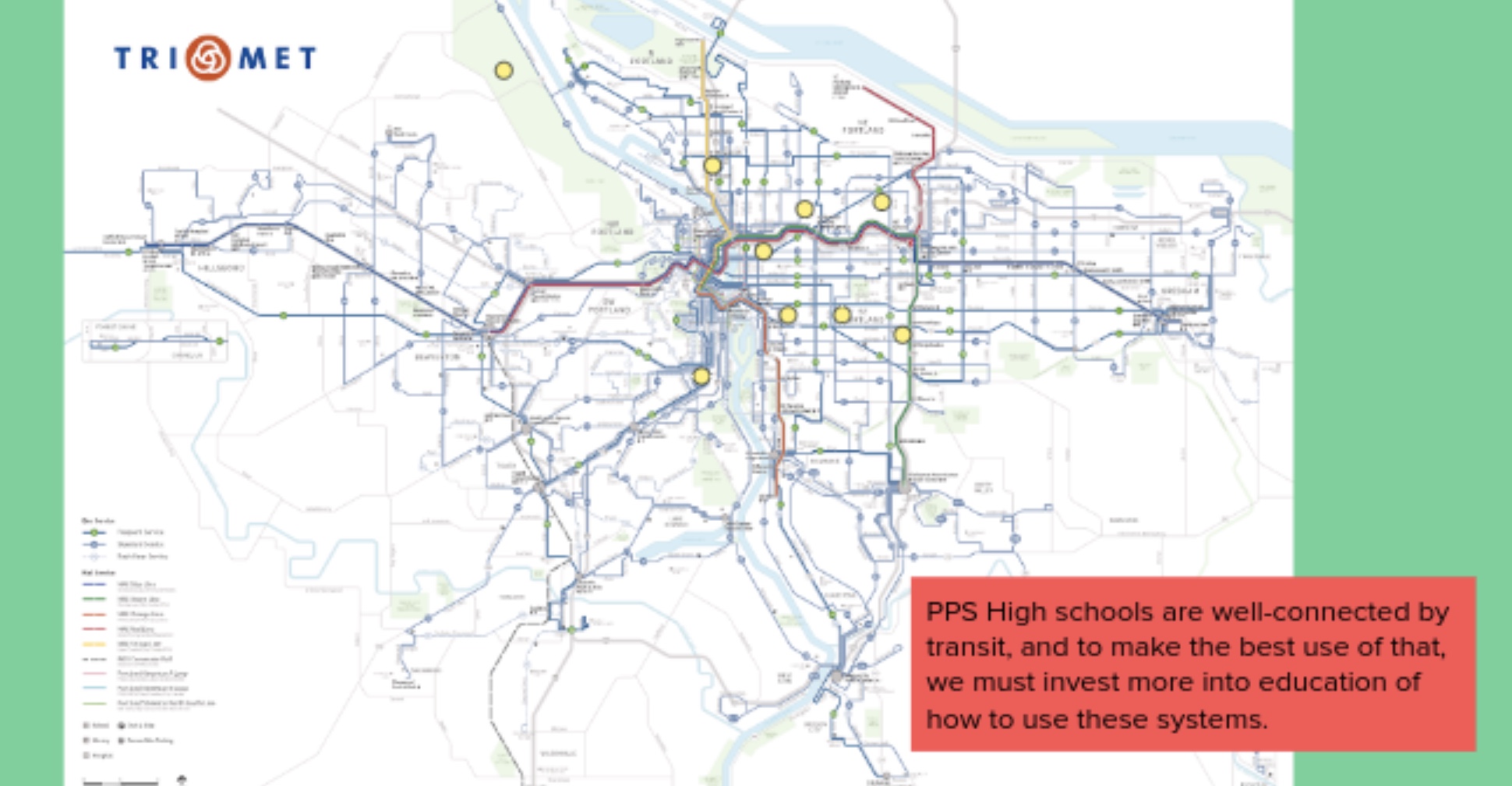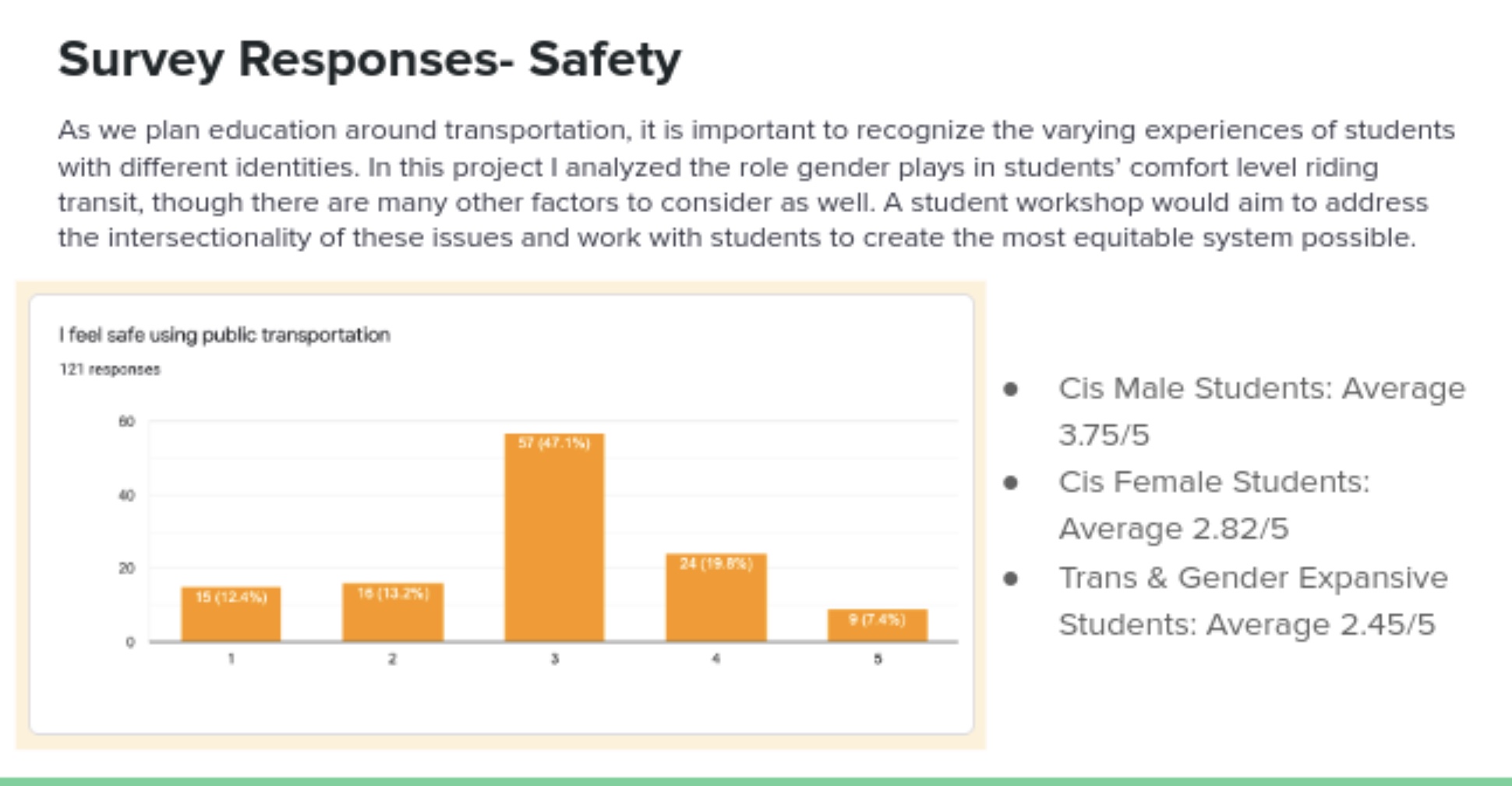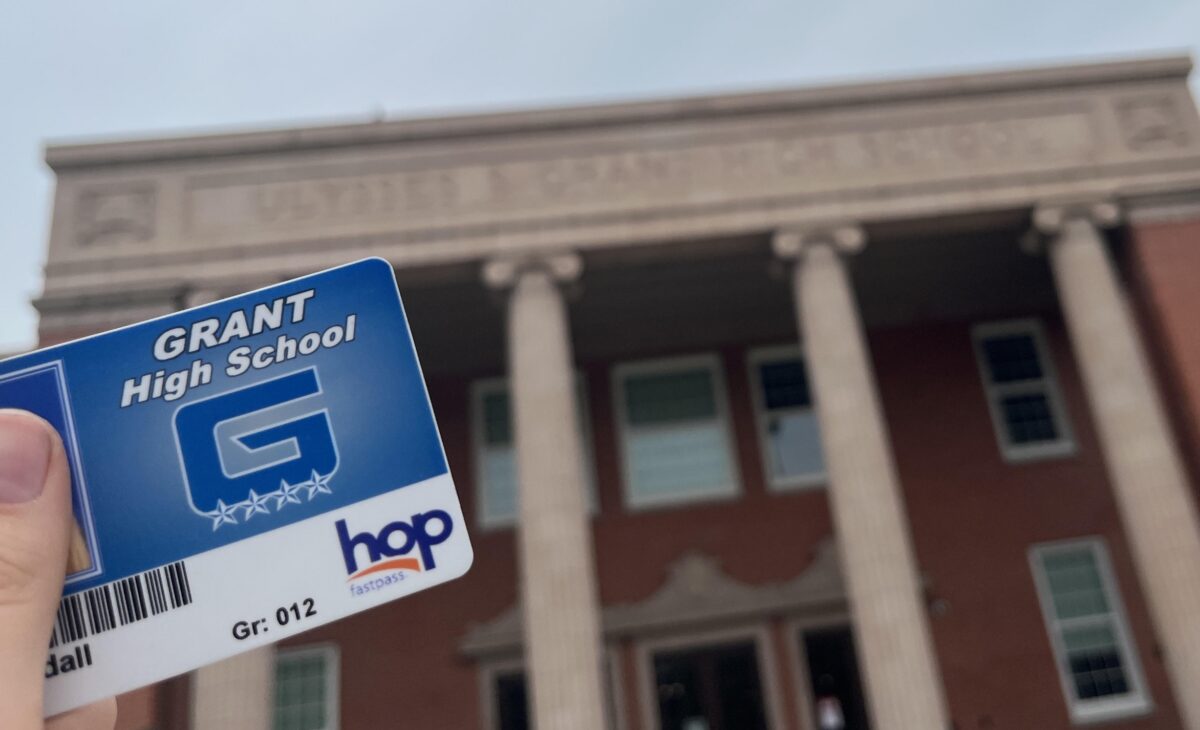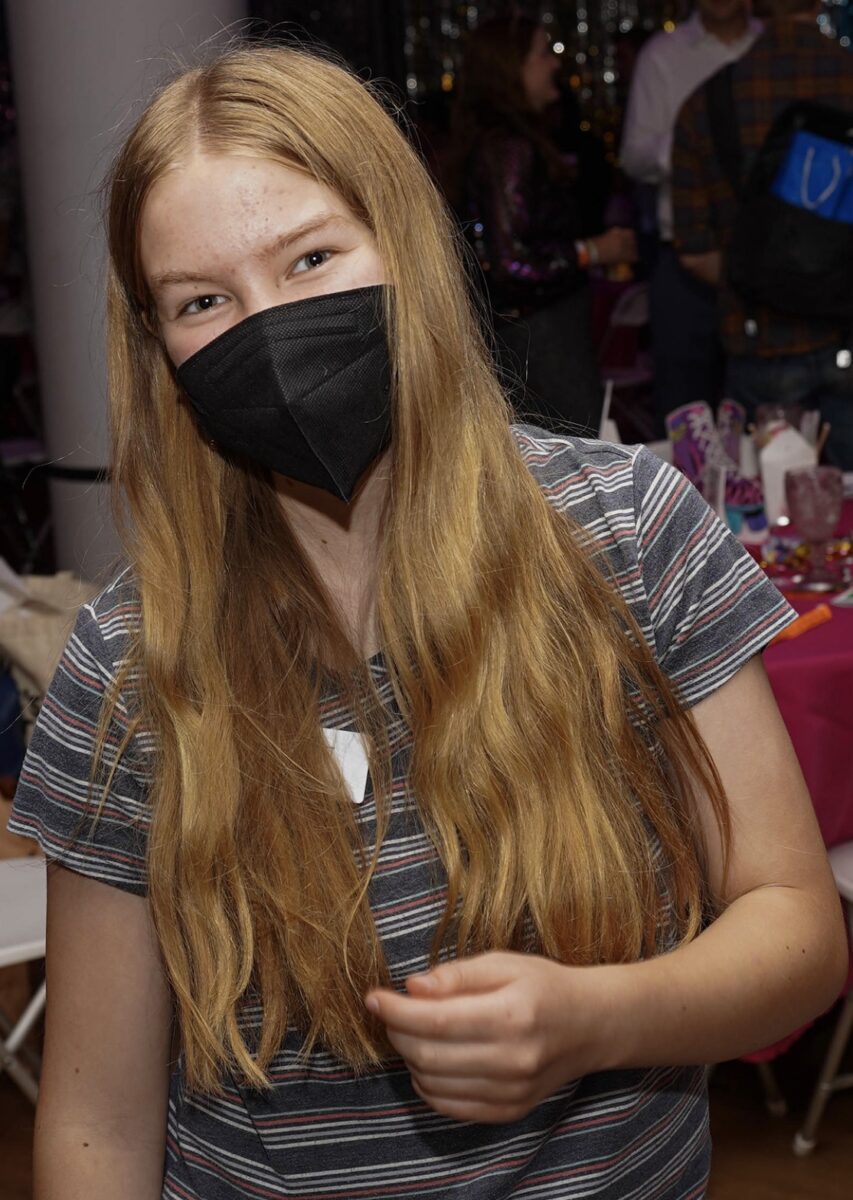Story by 16-year-old Grant High School student Adah Crandall.
Last fall I had the opportunity to participate in PBOT’s Traffic and Transportation Class. I was at least a decade younger than everyone else there, but as a youth climate organizer, it was a dynamic I’m all too familiar with.
As a final project for the class, each student presented a proposal to solve a transportation issue in our community. The ideas ranged from cleaning up leaves in bike lanes to creating safer intersections, to improving local walkability.
My proposal was to create a series of workshops or a school curriculum to help incoming high school students get oriented with Portland’s transit system, and teach them how to better utilize the resource of free transit passes provided by Portland Public Schools.
When I surveyed my peers last fall, a striking number of them said that they either didn’t know how to or didn’t feel safe using the bus or MAX. The safety piece was disproportionately true for female, transgender, and BIPOC students.
“It is crucial we educate the next generation so they understand cars are not — and should not be — the only mobility option. We have driver’s ed, but we don’t have transit rider’s ed?”
In order to build an equitable, multimodal transportation system, it is crucial we educate the next generation so they understand cars are not — and should not be — the only mobility option. We have driver’s ed, but we don’t have transit rider’s ed?
As a high school student, I’ve spent the last few months watching many of my classmates get their driver’s licenses. That little plastic card is a coveted ticket to independence, one that students crave and the media glorifies.
As a climate and transportation justice activist, I’m faced with a moral dilemma: getting my license feels like giving into the status quo; but I am also acutely aware of the fact that the climate crisis is not the fault of individuals like me, but of systemic failures to reduce emissions at a global scale. (And I’d be lying if I said I didn’t envy my classmates’ ability to easily go on day trips to the woods or the coast, or get to school without it taking 40 minutes and two different buses!)



My proposal for transit workshops is inspired by the fond memories I have of participating in Safe Routes to School programming when I was in elementary school. In fourth grade, my classmates and I took part in a multi-week bike safety program where we were taught how to be safe cyclists and encouraged to use biking as a primary mode of transportation.
Students who biked to school on certain days would receive prizes, and the class that did the most walking/biking/rolling to school by the end of May got an ice cream party. Of course, I was most definitely thinking about ice cream and not about emissions reduction, but the impact was still the same.
To me, this program is representative of the start of what valuable transportation education could look like for our students. But it’s only the beginning. I recognize now the inequities within the program — I, a privileged, white student, had access to a bike and lived in a neighborhood with safe crosswalks and sidewalks, while the same was not true for many of my peers. In turn, I was rewarded for walking and biking to school, and students who couldn’t were not.
I now attend Grant High School in northeast Portland, where the majority of the student body is white and affluent. Many of my peers have their own cars, and some have never taken the bus in their lives. This is part of the problem.
At my school, and in our society, taking the bus often comes with negative connotations. Car culture is a symptom of classism and white supremacy that is directly fueling the climate crisis by stigmatizing “alternative” modes of transportation and equating car ownership with social status.
This doesn’t have to be the reality. What if instead of teaching students to associate taking the bus with poverty and inferiority, we started teaching them to view it as a powerful way to interact in community and reduce carbon emissions?
In my mind, I can imagine a world of transportation and climate justice. As a young person, I consider this to be my superpower.
Less worn down by the status quo of what is considered “politically possible,” I see a future where the bus comes every five minutes, where cities are built for people and not for cars, and where each and every one of us has access to the fundamental right of mobility. These things are not radical, they are necessary if we want to maintain a habitable planet.
Achieving this world starts with robust transportation education for our students. I have sent dozens of emails about this project, collected more business cards than I can count, and spent much of the little free time I have on Zoom meetings with various PBOT, Trimet, and ODOT employees. The sentiment is there — most everyone agrees that transit workshops for students are a good idea.
The execution, however, is where it falls short, perhaps because the vast majority of our government’s transportation energy goes to fueling the status quo instead of breaking through it.
So here’s the rub: I’m too busy organizing climate strikes and trying to prevent ODOT from expanding a freeway into my middle school to make this project happen. I am an exhausted, 16-year-old organizer on whose shoulders this work should not fall, which is why I am asking for your help.
Building a better world is going to take all of us, and we each have a different role to play. An organizer I look up to once told me that the climate movement is not a marathon nor a sprint—it’s a relay race, and that every once in a while we must pass on the baton. For this project, I feel I have done my part. Now, I am putting it out into the world in hopes that someone will take the next step to make transit education a reality.
If you’re interested in learning more about this, or even taking the baton, contact me via adahrae32@gmail.com.
— Adah Crandall





